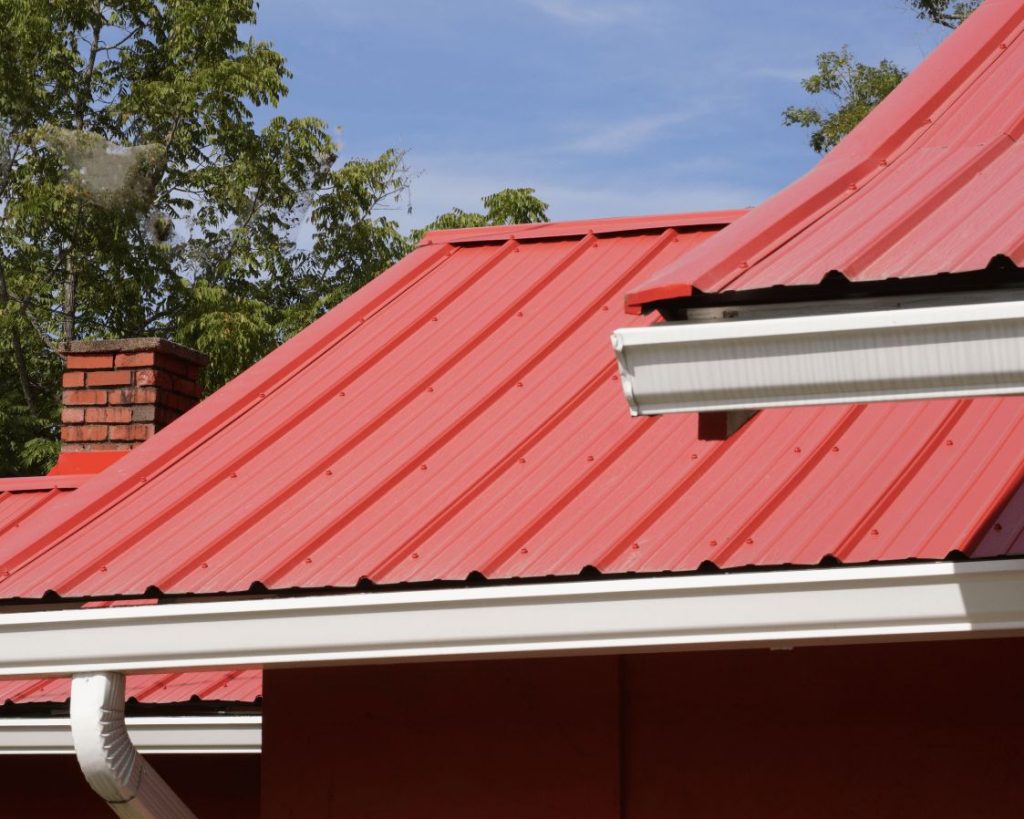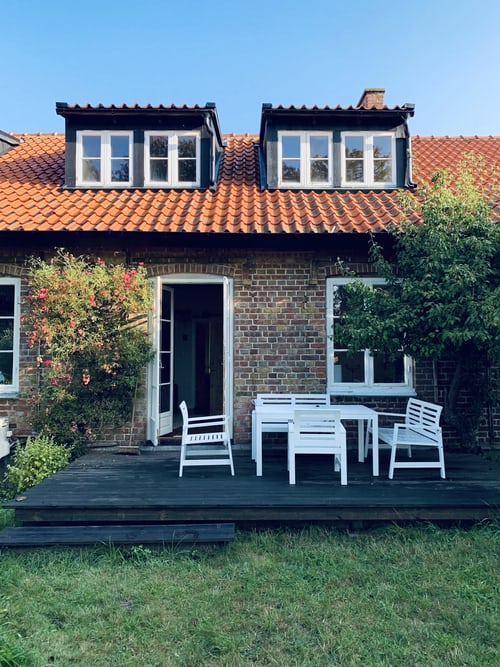Homeowners contemplating roof replacement have several vital decisions to make. The type of roof and material they choose will significantly impact the durability, maintenance requirement, cost, and appearance of the new roof.
Though shingles are the most popular residential roofing material, metal roofs are slowly rising in popularity. More and more homeowners are now considering them to replace their existing roofing systems. Metal is a widely used roofing material in commercial applications, but homeowners are now discovering the benefits of metal roofing for residential use.

Steel, aluminum, copper, zinc, and tin are the popular materials used to construct metal roofs. If you are looking for a new roof and searching for different roofing options, consider the pros and cons of metal roofing before making the final decision.
Metal roofing pros
Longer lifespan
A well-installed and correctly maintained superior metal roof has a service life of anywhere between 40 and 70 years, depending on the material, while withstanding rain, wind, snow, and sun. Their life expectancy is more than double that of traditional asphalt shingle roofs. Metal roofs are the best for homeowners willing to stay in the same house for a significant amount of time. Most roof manufacturers offer a warranty of 30 to 50 years on their products. It means that you can get the roof replaced for free during that duration if it fails to last as expected.
Ease of installation and maintenance
Metal is one of the lightest roofing materials, making it possible to install them directly over the existing shingles without additional structural support. They come in panels or sections of multiple shingles that are quick to install. Metal roofs also require little to no maintenance, and repairs are simple compared to other materials.
Durable
Metal roofs are highly durable and can endure winds up to 140 miles per hour. They are also resistant to cracks, corrosion, mildew, rot, and pest infestation. Metal roofs can stand the test of time and stay firm even in the harshest weather conditions. They are naturally fire-resistant and protect the home from wildfires or lightning. Metal has a class A fire rating and remains unaffected from embers or flying sparks.
Energy efficient
Metal reflects sunlight to minimize the heat and keep the house cold during the warmer months.It reduces the cooling costs by up to 25%. During winters, metal roofs work as excellent insulators to prevent hot air from escaping the home. Metal roofs help homeowners save significantly on energy bills, irrespective of the season.
Environmentally friendly
Metal roofs are fully recyclable at the end of their lifespan, unlike asphalt shingles, which usually end up in landfills. A quality roof uses 35% to 95% recycled materials. They are ideal for people looking for sustainable roofing materials.
Stylish
Metal roofs look stylish and add distinct beauty to the home. They maintain their look for a long time and look fresh and new even after years of installation. Metal roofs are available in varied colors and styles, and they also hold paint well.
Metal roofing cons
High upfront cost
Metal roofs cost a lot more than other roofing materials. Their installation involves a considerable initial investment. Metal roofs are complex to install and require expert roofers with specialized knowledge and experience. However, metal is a durable material that reduces the need for frequent roof replacements and saves money on utility bills, insurance, and maintenance, making the upfront cost worthy.
Noisy
Metal roofs may produce a lot of noise compared to other materials during heavy rains or hailstorms. Adding extra layers of insulation or materials with structural barriers minimizes noise but drives up the installation cost.
Dents easily
A metal roof is susceptible to dent and scratches if large-sized hail, tree limbs, or other heavy flying debris fall on it with significant force. Since aluminum and copper are softer than steel, they remain more prone to dent. Choose the material wisely to ensure that the roof stands firm.
Thermal expansion and contraction
A metal roof is prone to expansion and contraction in areas experiencing extreme temperature fluctuations if the panels are not installed correctly.
Difficult to access
Metal roofs are tougher to walk on, and there is always a risk of either damaging and denting it or sustaining injury due to slipping off from it. Cleaning and maintaining the roof becomes challenging during humid conditions or if the roof surface has moss or algae growth.
Metal roofs offer incredible benefits that outweigh the drawbacks. Correctly installing a metal roof is vital to ensure it lasts longer and performs well. Contact a roofing contractor if you are looking to upgrade to metal roofing. They can assist you in deciding if metal roofs are the ideal choice depending on your home style and local weather conditions.
